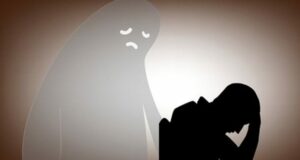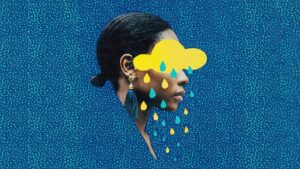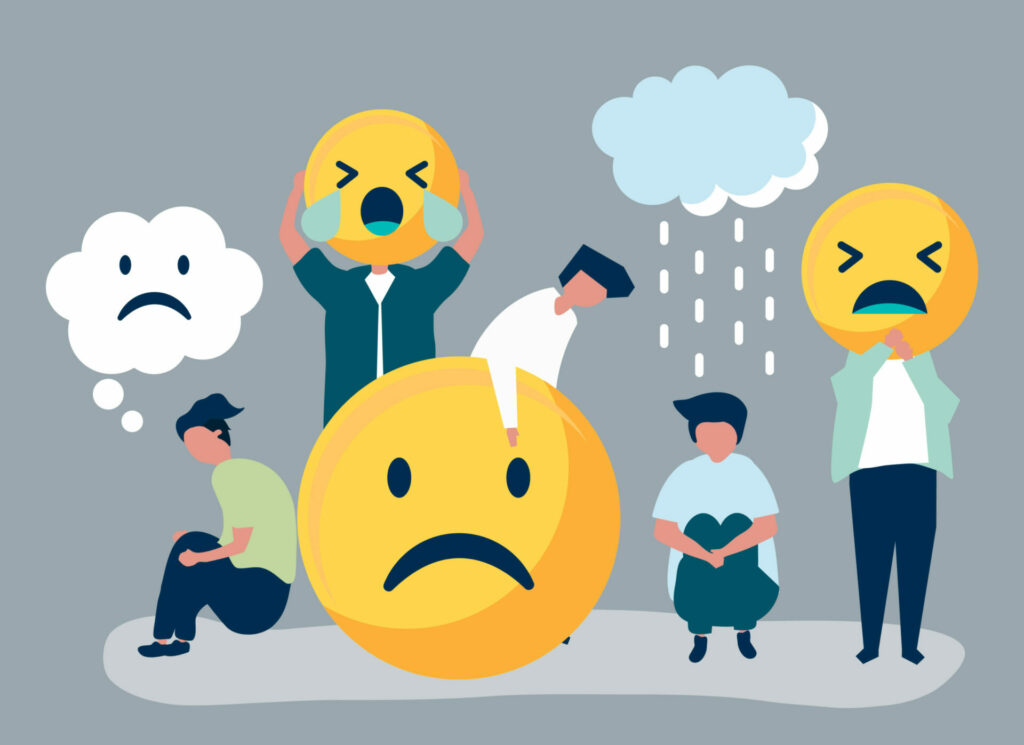Major depressive disorder (MDD) is a serious psychiatric illness that affects an estimated 18.2 million adults in the world according to the National Institute of Mental Health (NIMH). The condition is characterized by persistent sadness and loss of interest or pleasure in life, accompanied by significant impairment in daily activities. Read further to know more about it like signs, causes, and treatment options.
Contents
What is Major Depressive Disorder?

Depression is a serious mental illness that can significantly reduce the quality of life. It’s important to understand the basics of major depressive disorder (MDD) so you can get the most out of treatment.
Major depressive disorder is a serious mental illness that causes a person to have severe, persistent sadness and decreased interest in activities. It can significantly reduce the quality of life.
People with major depressive disorder often have other symptoms, such as weight loss or lack of energy, sleep problems, and difficulty concentrating. They may also experience recurring thoughts of death or suicide.
There’s no one specific cause for major depressive disorder. However, many factors can contribute, including genetics and lifestyle choices.
Treatment for major depressive disorder typically includes medication and therapy. Therapy helps people learn how to manage their emotions and behavior more effectively. Medication is sometimes also needed to help relieve symptoms.
It’s important to seek treatment if you’re experiencing signs and symptoms of major depressive disorder. Treatment can help improve your quality of life and prevent future episodes of depression.
What are The Symptoms of Major Depressive Disorder?

Major depressive disorder (MDD) is a serious mental illness characterized by persistent sadness, loss of interest in activities, feelings of guilt, diminished energy, difficulty concentrating, and recurrent thoughts of death or suicide.
The signs and symptoms of MDD can vary from person to person, but they often include some combination of these factors. In general, people with MDD experience a significant decrease in their mood and energy levels over an extended period. They may also experience changes in appetite and weight gain or loss, reduced sexual desire or pleasure, insomnia or hypersomnia, feelings of worthlessness or guilt, and recurrent thoughts about suicide or death.
Some of the other signs of major depressive disorder are:
Persistent sad, anxious, or “empty” mood
This is one of the first and most common signs of depression. If you’re persistently sad, anxious, or empty, it may be time to seek help. When you feel this way for more than a couple of weeks, it could be a sign of depression.
Loss of interest or pleasure in activities you used to enjoy
Do you no longer take part in the things you love? Depression can make it hard to get interested in anything. You may have lost your motivation to do the things you once enjoyed, such as going out with friends, playing sports, or even just getting out of bed in the morning.
Changes in appetite or weight
When you’re depressed, you may lose your appetite or find that you’re eating more than usual. This can lead to weight loss or weight gain. If you’ve noticed a
Feelings of hopelessness, or pessimism
When you’re depressed, you may feel like there’s no hope for the future. You may be pessimistic about your life and relationships. This can make it hard to see any positive in your life.
Irritability or restlessness
Depression can make you feel agitated or “on edge.” You may have trouble sitting still or concentrating on anything for more than a few minutes.
Fatigue or decreased energy
Do you always feel tired? Depression can cause fatigue and a loss of energy. It may be hard to do even simple tasks, such as taking a shower or getting dressed in the morning.
Difficulty sleeping, or early-morning awakening
Depression can make it hard to fall asleep or stay asleep. You may find yourself waking up early in the morning and not being able to get back to sleep.
Persistent aches or pains, headaches, cramps, or digestive problems that don’t go away with treatment
Depression can cause physical symptoms as well as mental ones. If you’re experiencing aches and pains that don’t seem to go away, it could be a sign of depression.
Thoughts of death or suicide, or attempting suicide
If you’re having thoughts of harming yourself or taking your own life, it’s important to seek help immediately. This is a serious sign of depression and requires emergency medical attention.
What Causes Major Depressive Disorder?
Major depressive disorder, also known as major depression, is a serious mental health condition that affects about 18% of the population, according to the National Institute of Mental Health. It’s one of the most common mental disorders in the United States and one of the most deadly. What causes the major depressive disorder is still unknown, but there’s evidence that it may be caused by a combination of genetic and environmental factors.
The major depressive disorder typically starts with a period of normal mood, followed by a sudden change, called an “episode.” Episodes can last for days, weeks, or even months. They can be very severe and cause,e you to have little interest in anything and to feel extremely sad, angry, hopeless, and depressed. Many people with major depressive disorder describe their episodes as feeling like they are living in a dark world where nothing good ever happens.
There is no single cause of major depressive disorder, but there is evidence that it may be caused by a combination of genetic and environmental factors. Genetics play an important role in the development of major depressive disorder; your genes are responsible for about 50% of your risk for developing the condition. However, it’s not clear which genes are involved and
How to Diagnose Major Depressive Disorder
Major depressive disorder (MDD) is a serious mental illness that can severely impair your quality of life. If you are experiencing severe mood swings, loss of interest in activities you once enjoyed, difficulty concentrating, and disturbed sleep, it’s time to see a doctor. Here’s how to diagnose MDD:
1. Collect your medical history. This includes information about any major depression episodes you’ve had in the past, as well as any other conditions or medications you’re taking that could be contributing to your symptoms.
2. Take a mental health questionnaire. This will help your doctor decide if you have MDD based on your answers.
3. Have a physical examination. This includes checking your blood pressure, pulse, and thyroid levels and measuring your weight and height.
4. Perform a psychiatric evaluation. This will assess your overall mental health including your cognitive function, moods, and personality traits.
What are the Treatments for Major Depressive Disorder?

Major depressive disorder is a serious mental disorder that affects many people. It’s characterized by a persistent low mood, diminished interest or pleasure in activities, and significant changes in sleep, appetite, energy, and thoughts.
There are many types of depression, and each requires a different approach to treatment. Antidepressants are the most common type of treatment for major depressive disorder, but they aren’t the only option. cognitive behavioral therapy (CBT), interpersonal therapy (IPT), and stress management training can also be helpful.
If you don’t respond well to antidepressants or other treatments, your doctor may recommend electroconvulsive therapy (ECT) or deep brain stimulation (DBS). ECT is an effective treatment for severe cases of major depressive disorder, but it’s not recommended for people who have mild to moderate cases of the condition. DBS is an emerging treatment for a major depressive disorder that uses electrical currents to stimulate nerve cells in the brain. While it hasn’t been FDA-approved for use in people with major depressive disorder yet, studies suggest it may be an effective treatment for some people who don’t respond well to other treatments.
Conclusion
Major depressive disorder is a serious mental health condition that can devastate an individual’s life. If you or someone you know is struggling with major depressive disorder, it is important to seek out professional help as soon as possible. There are many treatments available, and with the right support, most people recover from a major depressive disorder. However, without timely treatment, major depressive disorder can be very debilitating and even lead to suicide. If you or someone you care about is experiencing signs of major depressive disorder, don’t wait to get help; reach out for help now.
Hope this article was of help to you! If you are suffering from mental health disorders, you may seek help from Therapy Mantra. We have a team of highly trained and experienced therapists who can provide you with the tools and skills necessary for overcoming mental health disorders. Contact us today to schedule an online therapy or download our free Android or iOS app for more information.


